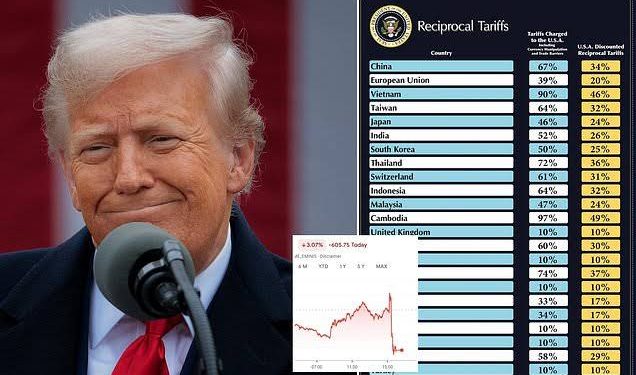Small and medium-sized enterprises around the world are increasingly bearing the brunt of escalating trade tensions as the United States, under President Donald Trump, continues to push a hard line on tariffs. Despite rising global anxiety and volatile stock markets, Trump has ruled out any softening of his administration’s tariff policies, insisting that countries must pay “substantial tariffs” to negotiate trade deals with the U.S.
This uncompromising approach sparked major tremors in financial markets. In the U.S., the Dow Jones plunged by 1,700 points at the start of trading, only to recover nearly 900 points before falling again. The dramatic swings were driven by a false report suggesting a 90-day pause in tariffs, which the White House promptly dismissed as fake news.
For SMEs, particularly those dependent on imports for goods, tools, or raw materials, the implications are severe. Unlike larger corporations that may have financial cushions or diversified supply chains, smaller businesses are far more exposed to cost fluctuations and supply disruptions. The uncertainty surrounding trade policies is creating anxiety among exporters and manufacturers, many of whom are already operating on thin margins.
The ripple effects are global. In Europe, markets suffered steep losses. Spain’s exchange dropped more than 5%, Germany’s DAX lost over 2,000 points, and Poland’s main index fell by 6% within hours of opening. Although some recovery was seen later in the day, the turbulence underlined the fragility of global investor confidence.
Fears of an impending global recession are intensifying, and SMEs appear to be on the frontlines. As large multinationals prepare to weather the storm with strategic shifts, small businesses are left scrambling to reassess sourcing strategies and manage rising costs, all while trying to maintain their market positions.
The interconnected nature of today’s economy means that policy decisions in one country can send shockwaves worldwide. And as one market analyst noted, in an era where even a tweet can destabilize economies, small businesses feel every disruption more deeply.










